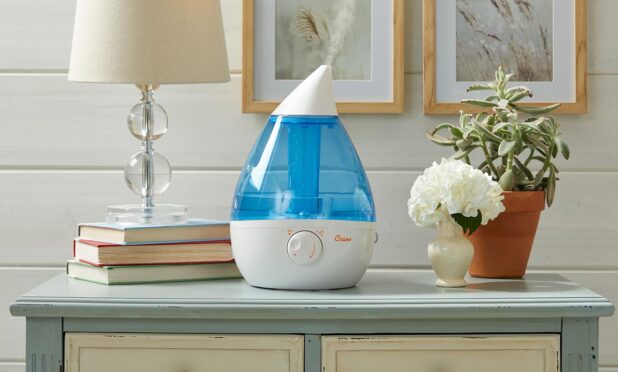Aside from the irritation that comes with dry eyes, it can make it pretty difficult to get decent sleep. If this goes on without getting checked, your sleep quality will be compromised. This will, in turn, affect your productivity at work and other activities.
Luckily, a few changes to your lifestyle can help to ease the symptoms of your dry eyes, improving the quality of your sleep and productivity as well. If you would love to learn some simple lifestyle changes you can make to ease the symptoms of your dry eyes and keep your eyes lubricated, we recommend you read this article.
Table of Contents
1. Start Your Day With a Glass of Water

Your dry eyes can be caused by dehydration or any other environmental factors around you. But one way to tackle the issue is to stay hydrated from within. If you’ve been battling with dry eyes, getting dehydrated can worsen it, regardless of the cause. Some reasons why you may be dehydrated include you have a low fluid intake or you consume a lot of salty foods.
You can start your day with a glass of water rather than coffee or tea to keep your body and eyes hydrated. Also, ensure you stay hydrated throughout the day by drinking water at intervals. This can help to relieve irritation, itching, redness, and any other symptom of dry eyes.
2. Change Your Diet
A deficiency of some vitamins, such as vitamin D, is likely to increase your chances of having dry eyes syndrome. Enriching your diet with vitamin D food sources can go a long way to help with your dry eyes. Also, you should add vitamins such as vitamins A and B12, which are essential for maintaining eye health, to your diet.
3. Avoid Alcohol Intake

Alcohol consumption is known to have a dehydrating effect on the body. If you’re currently battling dry eyes, it’s best to avoid alcohol as it can further dehydrate your eyes, making it harder to produce tears. In addition, alcohol consumption can make it difficult for your body to absorb the necessary vitamins, which further affects your eye health.
4. Ditch The Contact Lens
Using contact lenses for a long time is one of the factors that can lead to dry eyes syndrome, as it reduces the amount of oxygen that gets to your eyes. Without sufficient oxygen, it will be difficult for your eyes to develop natural tears. However, If you must wear contact lenses, you can opt in for lenses that are specially designed to keep your eyes moisturized. Also, avoid repeated or long-term use of the lenses, and don’t forget to take them out before bedtime.
5. Limit Your Screen Time

Having a high screen time can cause your eyes to dry out quickly; that is because you blink less frequently when looking at a digital screen. According to the Journal of Investigative Ophthalmology & Visual Science, strong and intentional blinking helps to promote your eye health and opens up your tear glands.
However, studies have shown that there is less blinking activity when using a screen that dries out the eyes. One way to avoid this is to cut down on your screen time. But if that is unavoidable, you can try the 20/20/20 rule when using a digital screen. This rule implies that you look away from the screen every 20 minutes at an object that is 20 feet away for 20 seconds.
6. Use a Humidifier
A humidifier adds moisture to the air when low or insufficient atmospheric humidity. This is great for your dry eyes as the extra moisture can protect your tear films and ensure that your eyes don’t become excessively dry. You can use a humidifier in your home, by your bedside at night time, or at your office.

7. Change Your Environment
Environmental factors such as low humidity, smoke, dust, high winds, and chemical exposure can be some of the causes of dry eyes. Luckily, most of these factors can be managed with certain adjustments. However, if your dry eyes are caused by environmental factors that are not within your control, the best step to take may be to consider a change of environment for total relief from the dryness.
Dry eyes syndrome can affect you in various ways. It can interrupt your sleep, make you less productive, and make certain tasks difficult. But making simple lifestyle changes can improve your symptoms and help you to find some relief. However, if your symptoms don’t seem to improve with those changes, you should consider visiting an eye doctor for a proper diagnosis of your dry eyes and, subsequently, for adequate treatment.
 World Magazine 2024
World Magazine 2024






